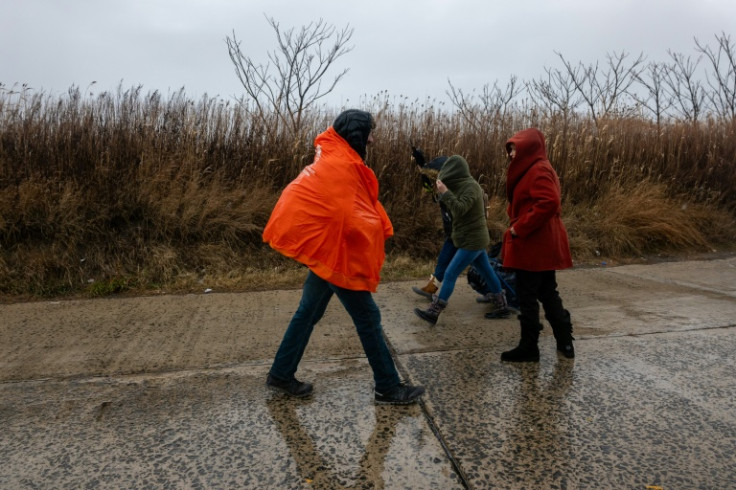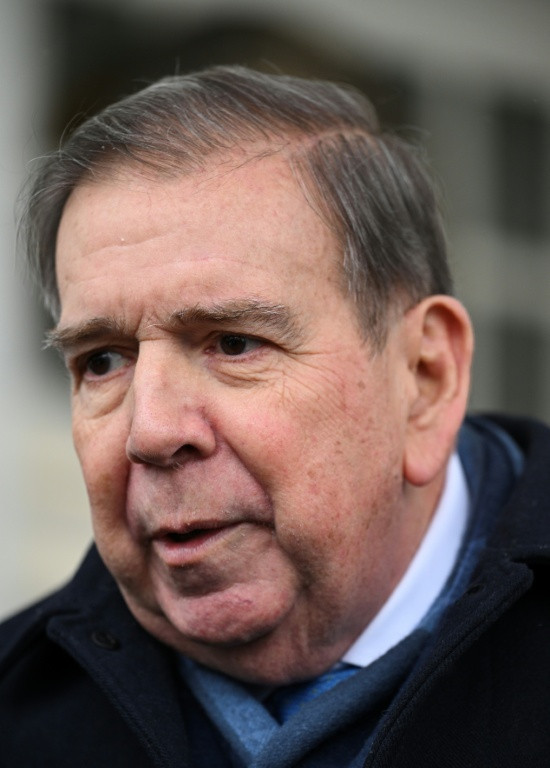
Venezuela's Edmundo Gonzalez Urrutia, who the opposition says won a July presidential election over incumbent Nicolas Maduro, said Tuesday his son-in-law was detained by "hooded men."
Writing on the social network X, Gonzalez Urrutia said his son-in-law Rafael Tudares was "intercepted by hooded men, dressed in black" while taking his children to school and driven away in a gold-colored van.
He gave no further details.
The incident came a day after US President Joe Biden hosted the exiled Gonzalez Urrutia for talks at the White House, infuriating Maduro's government, which has put a bounty on the 75-year-old's head.
It also comes amid tensions in the capital Caracas, three days before Maduro is due to be sworn in for a third term -- defying calls from the United States and other world powers for him to step aside in favor of Gonzalez Urrutia.
Maduro, a 62-year-old former bus driver who succeeded socialist firebrand Hugo Chavez on his death in 2013, claimed a third mandate in the July polls without providing detailed voting results.
The opposition published results from over 80 percent of polling stations, which it said showed Gonzalez Urrutia winning by a landslide.
Maduro was nonetheless proclaimed the victor, leading to rioting in which more than 20 people were killed and nearly 200 wounded.
Another 2,400 people were arrested in a sweeping crackdown on dissent, of whom around 1,500 have since been freed, according to authorities.
Gonzalez Urrutia fled to Spain in September after being threatened with arrest but has vowed to return to his country to be sworn in on Friday.
He has toured capitals in the Americas in recent days to try to isolate Maduro, whose reelection has been recognized by only a handful of countries, including longtime ally Russia.
On Sunday, Gonzalez Urrutia called for the armed forces to recognize him as their commander-in-chief. The appeal was summarily rebuffed by the military, which pledged continued loyalty to Maduro.
The opposition has called for major demonstrations on Thursday, the eve of Maduro's swearing-in.
Opposition leader Maria Corina Machado, who backed Gonzalez Urrutia for president after being barred from running herself, urged supporters to turn out in "millions," and said she would be there herself.
But it is unclear whether Venezuelans, wearied by decades of economic crisis and fearful of government vengeance, can be persuaded to demonstrate in large numbers once again.
Years of protests and US sanctions imposed over previous elections tainted by fraud allegations have failed to dislodge Maduro.
A parallel government set up by the opposition in 2019 with the support of over 50 countries also failed to hasten an end to his rule.
Carol Pedroso, professor of international relations at the Federal University of Sao Paulo in Brazil, told AFP the chances of ousting Maduro were "unlikely" in the short term, "unless (the opposition) has a trick up its sleeve."
In the meantime the opposition is waiting to see what strategy US President-elect Donald Trump will adopt when he returns to the White House later this month.
During his first term, Trump had applied a policy of "maximum pressure" on Maduro's regime, including crippling sanctions on the oil sector, which were later partly rolled back by Biden.
Under Maduro, the economy of once-wealthy Venezuela has imploded, pushing more than seven million Venezuelans -- almost a quarter of the population -- to seek a better life abroad.
Faced with the prospect of six more years of economic chaos and repression, yet more are packing their bags.
Susej Ramos, a 30-year-old nurse, told AFP Maduro's reelection claim was "the last straw" for her.
She said she and her brother planned to emigrate to the United States under a humanitarian parole program open to Cubans, Haitians, Nicaraguans and Venezuelans.









